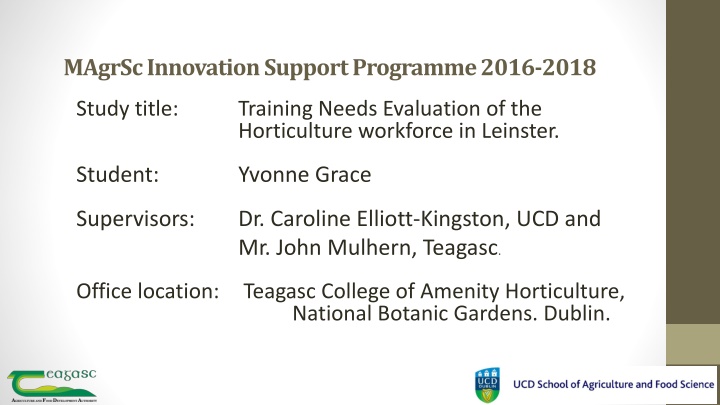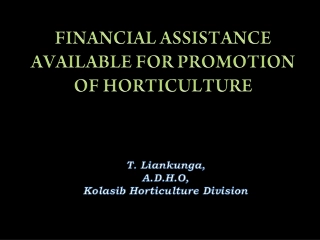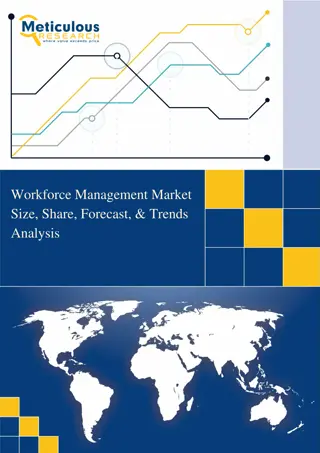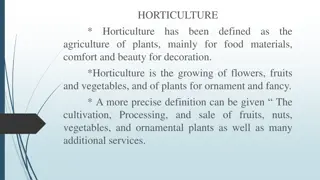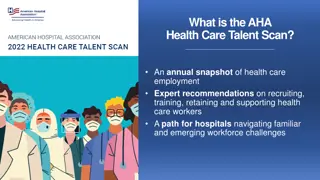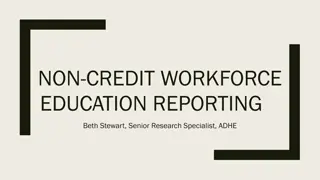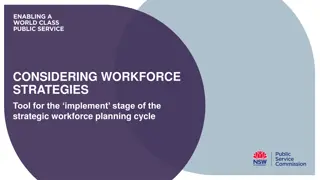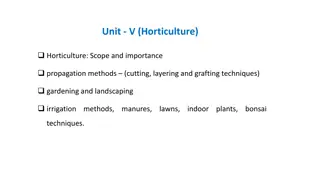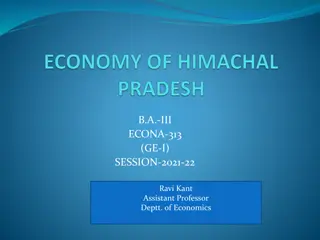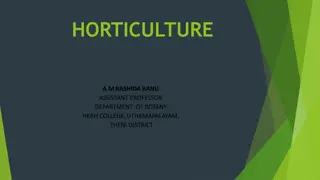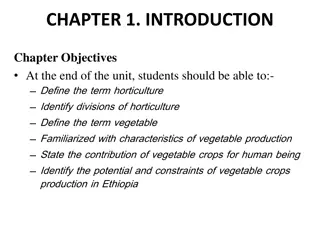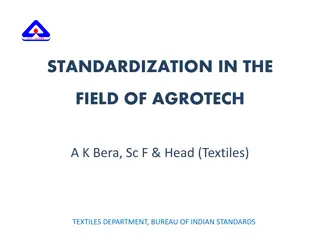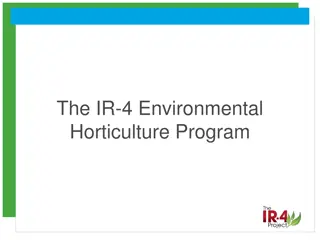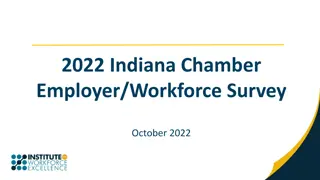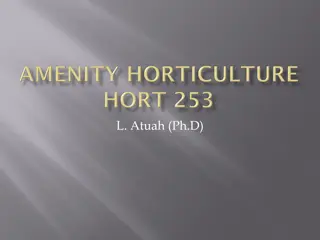Evaluation of Horticulture Workforce Training Needs in Leinster
This study aims to assess the training needs of the horticulture workforce in Leinster through a Training Needs Evaluation (TNA). The research investigates if current employees and new graduates meet industry skill requirements and if training can address industry challenges. A structured methodology involving interviews, document analysis, and observations will provide insights into workforce skills and training gaps. Primary findings highlight areas such as supervisory skills, motivation, and potential knowledge transfer solutions for workforce development in horticulture.
Download Presentation

Please find below an Image/Link to download the presentation.
The content on the website is provided AS IS for your information and personal use only. It may not be sold, licensed, or shared on other websites without obtaining consent from the author.If you encounter any issues during the download, it is possible that the publisher has removed the file from their server.
You are allowed to download the files provided on this website for personal or commercial use, subject to the condition that they are used lawfully. All files are the property of their respective owners.
The content on the website is provided AS IS for your information and personal use only. It may not be sold, licensed, or shared on other websites without obtaining consent from the author.
E N D
Presentation Transcript
MAgrSc Innovation Support Programme 2016-2018 Study title: Training Needs Evaluation of the Horticulture workforce in Leinster. Student: Yvonne Grace Supervisors: Dr. Caroline Elliott-Kingston, UCD and Mr. John Mulhern, Teagasc. Office location: Teagasc College of Amenity Horticulture, National Botanic Gardens. Dublin.
Objectives A training needs analyses (TNA) will provide a snapshot of the skill level of the current horticulture workforce in Leinster. Analyses of the data will discover; 1. Are current employees and new graduates meeting the skills requirements of industry. 2. Is training the answer to some of the issues experienced by industry stakeholders.
Methodology The TNA sets out a framework, which employs a range of research tools in order to collect data, which can be compared and contrasted. Research tools; Interviews; Employees and members of Bord Bia, Teagasc, IFA, ALCI, GCSAI, and all levels of employees across the four sectors. Document analysis; National and European reports and legislation affecting the land sciences. Observations; site visits and placement in Teagasc.
Thesis Structure / Chapters Contents Abstract 2. Introduction 3. Literature review 3.1 Introduction 3.2 Document analysis 3.3 Horticulture education providers in Leinster 3.4 Horticulture industry sectors in Leinster 3.4.1 Turfgrass sector 3.4.2 Food producers 3.4.3 Garden centres 3.4.4 Nursery stock 3.4.5 Landscapers 4. Methodology 4.1 Introduction 4.2 Turfgrass sector 4.3 Food producers 4.4 Garden centres 4.5 Nursery stock 4.6 Landscapers 4.7 Document analysis 4.8 Interviews 4.9 Observations 5. Findings and analyses 5.1 Introduction 5.2 Turfgrass sector 5.3 Food producers 5.4 Garden centres 5.5 Nursery stock 5.6 Landscapers 6. Conclusion 7. Recommendations
Primary Findings Gap Analyses It can be difficult to have confidence in new employees. There is a lack of motivation for employees to progress. Supervisory skills and training. Transparency around work place expectations and prospects. We need employees to bring real added value to the business. Possibly untapped skills; social media, marketing, language. Owner / managers find it difficult to delegate. People management skills.
Potential for knowledge transfer Gap Analysis Solutions People management training module. Supervisory CPD training. Teagasc can facilitate discussion groups. Communication in the workplace, new framework. Identified need for people management skills. Supervisory skills. Transparency around work place expectations. Possibly untapped graduate skills; social media, marketing, language. 6
Key Findings Student survey 2016 131 respondents 90% from last 5 years 70% from level 7 Where did students find work Source: Dr. Paul Fitters
Conclusions to date OECD research highlighted skills needed by industry for the future; human capital, creativity, advanced reasoning, complex judgment, emotional intelligence, social interaction and problem solving. A the recent FoodWise 2025 Conference, the attendees were asked Which theme do you consider most important?; Results were; Sustainability 41%, Innovation 20%, Human Capital 16% , Competitiveness 13% and Market development 11% Recommendations will offer solutions regarding training, in order for stakeholders to remain competitive within their sector.
Steps to completion October December 2017 Interviews, transcription, data analyses. January March 2018 Conclusions, write up draft document.
Thank you for listening References Dr. Paul Fitters OECD (2017), Getting Skills Right: Skills for Jobs Indicators, OECD Publishing, Paris. http://dx.doi.org/10.1787/9789264277878-en The OECD Programme for the International Assessment of Adult Competencies (PIAAC) http://www.oecd.org/skills/piaac Macroeconomic benefits of vocational and education training - www.cedefop.europa.eu/files/5540_en.pdf
